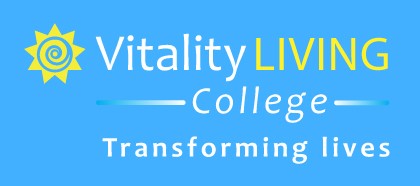EFT Tapping Reduces Grief, Anxiety & Improves Sleep in Cancer Patients: New 2025 Study

In this blog, you’ll discover how Emotional Freedom Techniques (EFT) can support cancer patients and caregivers in easing grief, anxiety, and sleep difficulties. You’ll learn what anticipatory grief is, how it affects emotional and physical well-being, and how a few minutes of daily tapping can calm the nervous system. Plus, explore the simple EFT steps shown in recent research to bring comfort, rest, and emotional balance during challenging times.
What the New Study Found | The Science Behind EFT Tapping | What Makes This Study Important | The Tapping Protocol Used | Why This Matters for Everyday Life | EFT Tapping and the Expanding Field of Research| For Therapists, Healers, and Coaches | CONCLUSION
There are moments in life when words simply aren’t enough.
When a loved one’s diagnosis, or the uncertainty of the future, leaves the body trembling in ways you can’t explain.
It’s in those moments that the body remembers — before the mind does — how deeply you’re hurting.
And yet, sometimes healing begins not with more thinking, but with a gentle touch… a few fingertips tapping on points of calm.
Recently, a 2025 clinical study published in Medicine (Baltimore) affirmed what many therapists, healers, and clients have already felt in their hearts:
EFT Tapping can meaningfully reduce anticipatory grief, ease anxiety, and improve sleep quality — even in those facing life’s toughest battles.
What the New Study Found?
The research team, based in China, worked with 58 cancer patients struggling with anticipatory grief — the emotional pain that arises before a loss occurs.
It’s a silent suffering many people face: the fear of what’s coming, the sadness of what’s already fading, and the exhaustion of not knowing how to rest through it all.
Participants were divided into two groups:
- One group received routine medical care only.
- The other received the same care plus four weeks of EFT Tapping therapy.
Each day, participants in the EFT group spent just five minutes tapping on acupressure points while repeating gentle phrases to release fear, anxiety, and grief.
After four weeks, the results were striking.
And these weren’t subjective opinions — they were measured using validated scales used in psychology and medicine.
In short, the body and mind responded — not just emotionally, but physiologically.
The Science Behind EFT Tapping
For those new to it, EFT (Emotional Freedom Techniques) is a mind-body method that combines gentle tapping on acupuncture points with statements of awareness and self-acceptance. Think of it as a blend between cognitive reframing and acupressure — a way of telling the nervous system, “You’re safe, it’s okay to let go.”
When we tap, we stimulate pressure points along energy pathways that connect to the amygdala — the part of the brain responsible for the fight-flight-freeze response.

Multiple studies have shown that tapping can reduce cortisol (the stress hormone), regulate heart-rate variability, and shift brainwave activity towards calm and coherence.
In this 2025 trial, the improvement in sleep quality suggests that tapping may help restore parasympathetic balance — allowing the body to move from vigilance to rest.
What Makes This Study Important?
While EFT has been researched for over two decades, this study stands out for three reasons:
1.
Hidden heartbreak:
It focuses on anticipatory grief, a deeply human and often overlooked form of suffering — not only in cancer but also in caregiving, ageing, and chronic illness.

2.
Rest as repair:
It links EFT to better sleep, which is a measurable sign of nervous system recovery.

3.
The five-minute shift:
It validates a short, daily practice — just five minutes a day — showing that small, consistent actions can create real change.
For practitioners and healers, this study reinforces what we see every day in sessions:
When clients tap, they don’t just talk about their pain — they shift it.
The Tapping Protocol Used
The EFT Tapping process in the study followed a simple, structured flow:
Step 1:
Identify the emotion
For example, fear, grief, or helplessness.
Step 2:
Create a setup statement
Such as “Even though I feel so anxious about what’s ahead, I deeply and completely accept myself.”
Step 3:
Tap through nine points:
- Top of the head
- Eyebrow
- Side of the eye
- Under the eye
- Under the nose
- Chin
- Collarbone
- Underarm
- Side of the hand
Step 4:
Repeat calming or compassionate statements during each round.
Step 5:
End with deep, grounding breaths, allowing the body to settle.
The sessions were facilitated by trained nursing staff who encouraged patients to self-tap between sessions whenever they felt emotional distress.
In other words, healing became something patients could hold in their own hands — quite literally.
Why This Matters for Everyday Life?
You don’t need to be in a hospital ward to understand grief.
We all face smaller versions of it every day — the loss of a dream, the end of a phase, the slow fading of vitality after stress or illness.
EFT Tapping isn’t just for emotional crises.

It’s for every time the mind races, the chest tightens, or sleep feels far away.
It’s a bridge between the stories we tell ourselves and the safety our bodies long to feel.
A few rounds of tapping before bed can ease restless thoughts.
Tapping after an emotional conversation can soften the edges of anxiety.
Tapping when grief visits unexpectedly can make space for tears — and then, for peace.
EFT Tapping and the Expanding Field of Research
This new study adds to a growing body of evidence:
- Over 100 clinical trials now support EFT’s effectiveness for anxiety, depression, PTSD, pain, and cravings.
- Meta-analyses show medium to large effect sizes, often comparable to traditional therapies.
- Biological studies confirm changes in stress biomarkers like cortisol and heart-rate variability.
What makes this remarkable is that EFT is self-applied, gentle, and non-invasive — no equipment, no side effects, no long waiting lists. It simply helps the nervous system find its rhythm again.
For Therapists, Healers, and Coaches
If you’re already practising EFT or energy-based work, let this study deepen your trust in what you offer.
Every tap, every breath, every moment of holding safe space — it all matters.
When a client’s body starts to relax, their biology is changing in real time.
Science is finally beginning to map what compassion has always known.
And if you’re new to EFT, this is the perfect time to explore it.
Learn how to tap for stress, grief, or self-regulation — for yourself first, and then for the lives you touch.
Because healing isn’t about fixing; it’s about remembering wholeness.
And sometimes, remembering begins with a tap.
CONCLUSION
The 2025 Medicine (Baltimore) study offers more than data — it offers hope. In a world that often seeks complex solutions, EFT reminds us that healing can be simple, accessible, and profoundly human.
A few minutes a day. A few gentle taps. A few words of acceptance.
And within that rhythm, the heart learns to rest again.
Love,
Dr Rangana Rupavi Choudhari (PhD)
P.S. Want to discover if EFT is right for you? Book a Complimentary Discovery Call.
Grief, anxiety, and sleep difficulties often intertwine in those facing cancer, creating a heavy emotional and physical burden. These feelings can stem not only from fear of loss but also from the uncertainty of what lies ahead.
Emotional Freedom Techniques (EFT) offer a gentle, evidence-based way to ease these struggles. By tapping on specific acupressure points while acknowledging emotions, EFT helps calm the nervous system and release stored tension.
A 2025 clinical study published in Medicine (Baltimore) found that just five minutes of daily EFT practice significantly reduced anticipatory grief and anxiety, while improving sleep quality in cancer patients.
Through consistent tapping, the body learns to relax, the mind begins to rest, and healing becomes something that feels both possible and personal.
References:

Learn Emotional Freedom Techniques for self healing or to become professionally qualified - More
Our other seminars:
For the full calendar of events.
Other articles you may be interested in:


